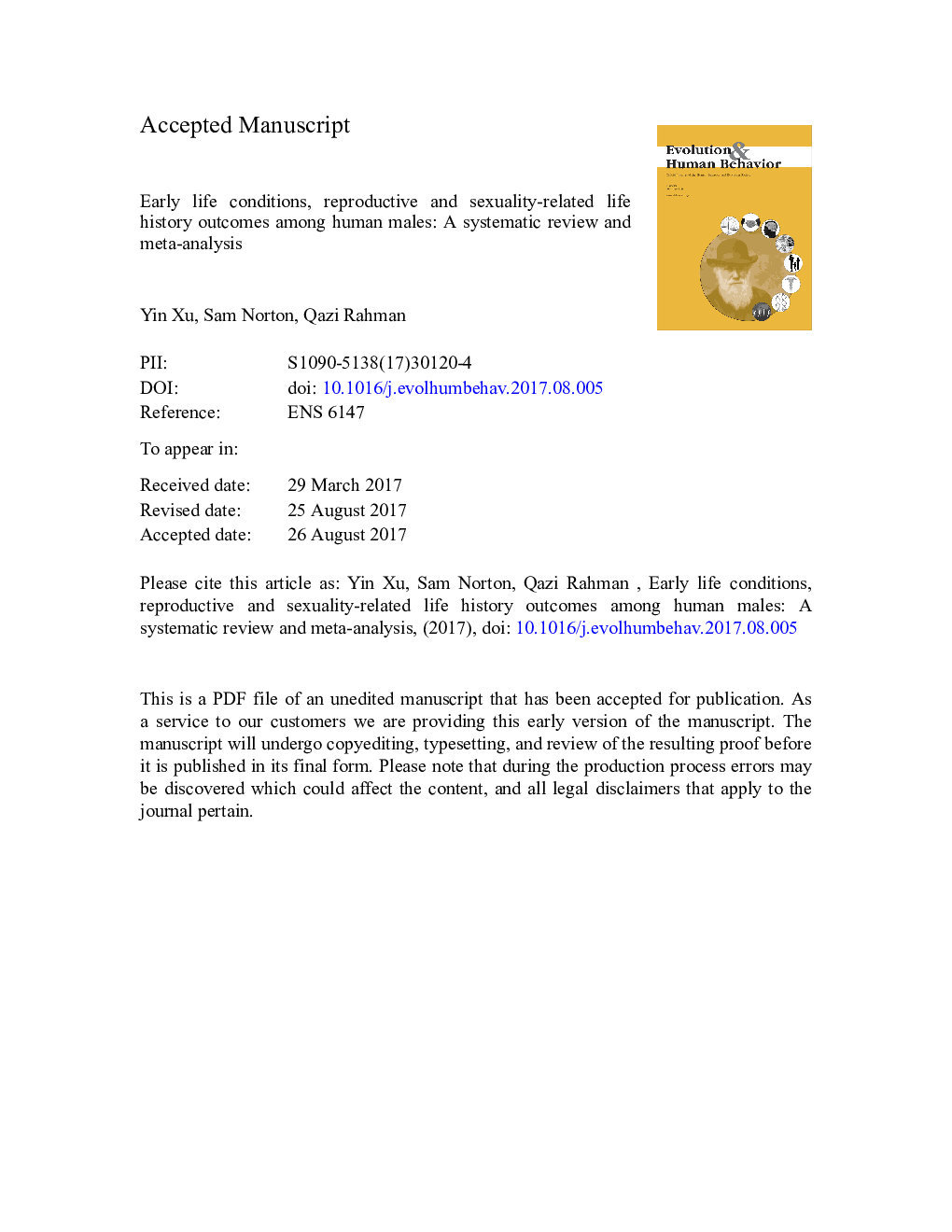| Article ID | Journal | Published Year | Pages | File Type |
|---|---|---|---|---|
| 7316361 | Evolution and Human Behavior | 2018 | 44 Pages |
Abstract
In order to investigate the association between early life conditions and reproductive and sexuality-related life history outcomes among men, we conducted a meta-analysis that compiled the results of 198 articles. A total of 331 effect sizes drawn from 573 samples were included. The meta-analysis revealed that low family socioeconomic status was associated with early sexual debut (r = 0.07), early first birth (r = 0.14), and early marriage (r = 0.03). There was no significant association between family socioeconomic status and pubertal timing or number of sexual partners. Parental absence was associated with early sexual debut (r = â 0.12), greater number of sexual partners (r = â 0.19), early first birth (r = â 0.14), and early marriage (r = â 0.13). There was no significant association between parental absence and pubertal timing. Small body size before puberty was associated with delayed pubertal timing (r = â 0.10). There was no significant association between adult body size and number of offspring, and between body size at birth and pubertal timing. Small adult body size, greater number of siblings, and older parents were associated with non-heterosexual orientation (rs = 0.12, 0.03, and 0.03 respectively). Factors such as sampling procedure, data collection method, and age cut-off used to measure family structure change influenced the association between some predictors (e.g., family socioeconomic status) and outcomes (e.g., first birth). The findings are discussed in relation to the utility of life history theory for understanding human male reproductive and sexuality-related outcomes.
Keywords
Related Topics
Life Sciences
Agricultural and Biological Sciences
Ecology, Evolution, Behavior and Systematics
Authors
Yin Xu, Sam Norton, Qazi Rahman,
